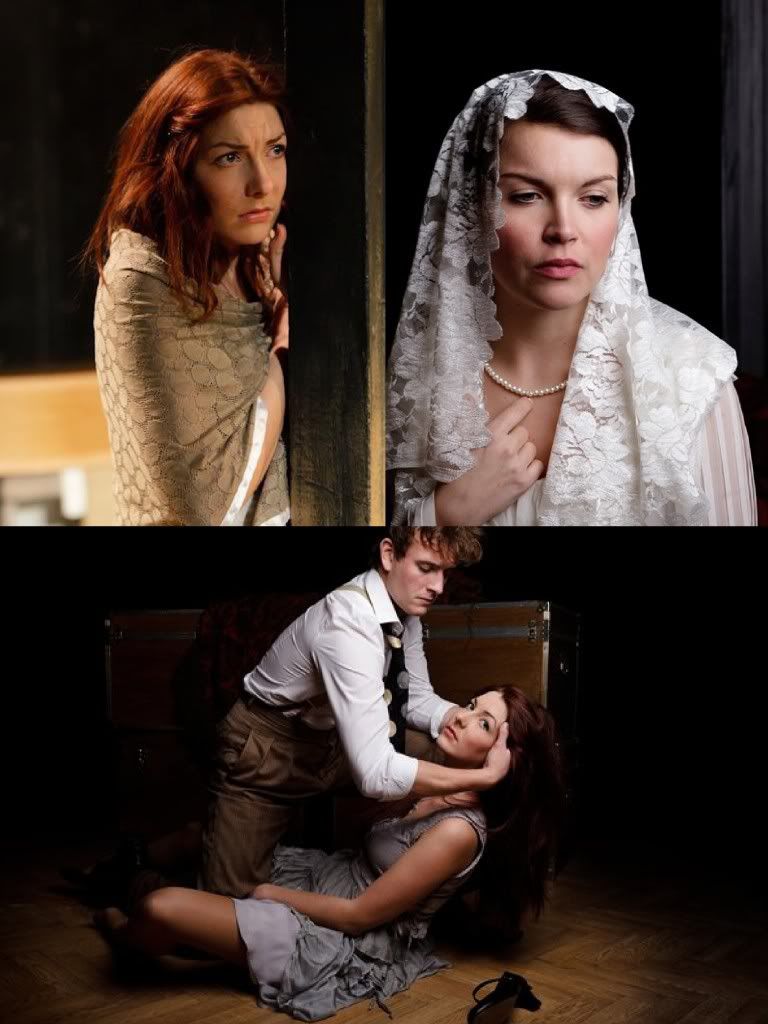The obvious thing that springs to mind about Double Falsehood is, of course, the authorship controversy (my gut feeling of which is that if Shakespeare had a hand in the play, only glancing traces now remain – though if I go into why I feel that, this will go on I suspect for pages) but I suspect the reason so many of the reviews of this production have focused on this aspect of the play to the detriment of all others is that, otherwise, it’s incredibly difficult to know how to approach it.
Mostly this is an issue of the play itself, rather than the production – an issue of changing sensibilities. It’s hard for me to approach a play, where so much of the plot argues against my beliefs. Where I could appreciate the setting, the performances, the lighting, the use of sound (mostly)… I couldn’t enjoy the play. And because of that watching it wasn’t ever anything other than slightly uncomfortable.
Simply, I couldn’t enjoy the story of a girl who is repeatedly victimised and whose only revenge is to tie herself permanently to one of her abusers. That being said, though, I was pleased that this production didn’t treat the ending as the happily ever after the text, I suspect, ended – it was bitter and sad – and promised more bitterness and pain and sadness in the future. It left me feeling slightly heartbroken and slightly dirty.
But… it wasn’t a bad production for all that. Like I’ve already said, I liked the way they approached these difficulties rather than just ignoring them. The rape early on is truly visceral – as are other violent scenes later on, the action was not sanitised and generally the performances were very good, adding layers to the characters that I’m not sure were actually present in the text.
I also liked how they handled the staging. The Union, though one of those venues that gives me a slightly ridiculous warm glow just from walking through the doors, offers a huge amount of limitations to productions. But as with Iolanthe, the last thing I saw there, I think that can work to their advantage and stretch their creativity. Here the small dark room added to the claustrophobic feel of the small village. They also used some really beautiful lighting to change scenes – the use of a window to create a church springing to mind (also I am an absolute sucker for strings of hanging lights – so I was won over before it even started).
The locale also had an unintended affect that I rather loved. As the Union is often punctuated by the dull distant rumble of passing trains which here seemed almost always to pass at the moment made important decisions or declarations adding an ominous feel to the proceedings. There was some nice use of sound throughout, with choral chanting as hooded monks moved through the audience particularly effective. Though I did find the loud clucking every time Julio’s father appeared a little strange and distracting.
Which leads to the difficult feeling of enjoying the ingredients, but not enjoying the cake (awful metaphors, ahoy). Though I am still glad I went, even if it is mostly for curiosities sake.

No comments:
Post a Comment